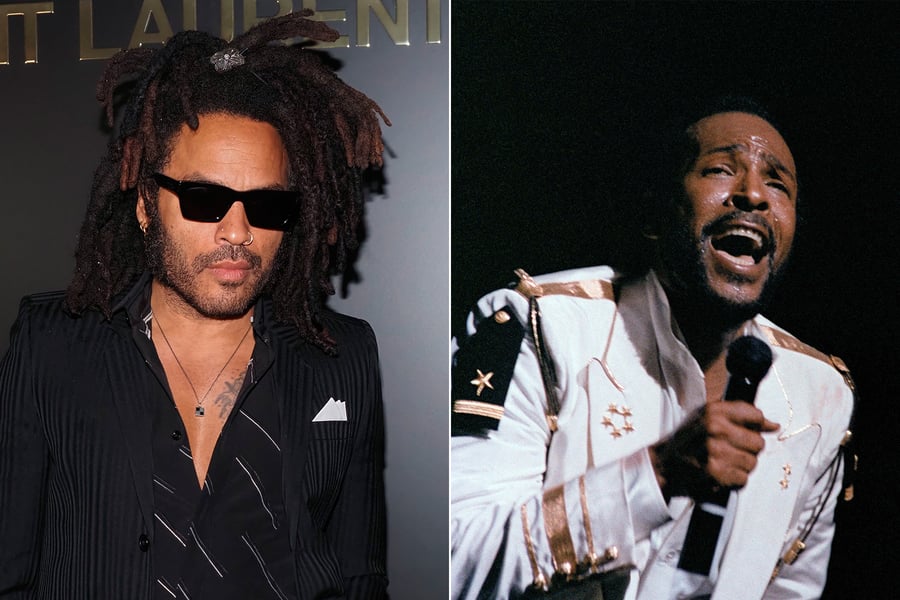At this point, you could make a compelling film about all the aborted attempts to make a compelling film about Marvin Gaye.
In 2008, F. Gary Gray (Friday, Straight Outta Compton) signed on to helm a movie called Marvin. In subsequent years, Cameron Crowe, Jamie Foxx, Scott Rudin and, most recently, Dr. Dre all attached themselves to different projects about the late Motown icon, each of which failed to see the light of day.
The same year that Gray was beginning work on Marvin, a James Gandolfini–produced film about the singer entitled Sexual Healing was set to begin shooting with director Lauren Goodman at the helm. Three years later, in 2011, Julien Temple, the British director behind oddball 1980 Sex Pistols mockumentary The Great Rock ‘n’ Roll Swindle, replaced Goodman and the film seemed like a go.
Enter Lenny Kravitz a year later, with the singer coming on board as Gaye for what would have been his first lead role in a film. The movie focused on Gaye’s stint in Europe in the early 1980s when he was trying to curb a drug addiction, get his health back, and restart his career. But three months later, Kravitz abruptly dropped out of the film and was replaced by Law & Order star Jesse L. Martin. (Just to make it more convoluted, Martin was originally cast as the singer, so he replaced Kravitz, who previously replaced him.)
Despite Temple’s film reportedly securing the rights to Gaye’s music — a feat that stymied many of his competitors — it never got off the ground and remains a “What if?” in Kravitz’s sporadic acting career that includes supporting roles in Precious and the Hunger Games series.
“I went to Oostend,” Kravitz tells Rolling Stone, referring to the small Belgian city where Gaye lived and cleaned up. “I did the whole thing. I stayed at Marvin’s apartment. I went to the gym where he was training for boxing, the church where he sang the Lord’s Prayer. The director [Julien Temple] went to the Bahamas [and] we hung out.”
Gaye would continue to live abroad and engineered a career comeback with 1982’s Midnight Love, which featured his final hit “Sexual Healing.” Two years later, his father fatally shot him in his Los Angeles home. In his recently released memoir Let Love Rule, Kravitz writes about learning of Gaye’s murder. “I was sure it had to be a sick April Fools’ joke, but it wasn’t,” he wrote. “When I later learned that Marvin Gaye Sr. was his son’s murderer, I shuddered. I knew about father-son rage. I understood how fury could turn violent. But this was an outcome beyond my imagination.”
For Kravitz, a lifelong fan of the singer, something about trying to portray his hero felt off. “I just didn’t feel right about it,” he said as part of his RS Interview: Special Edition. “I can’t even tell you what it was. There were some business and financing things going on which had nothing to do with me. I just gracefully bowed out with due respect to the director who’s wonderful and I really like as a person. In the end, I’m glad that I didn’t do it. Playing Marvin Gaye is a wonderful opportunity but [long pause] I’m just trying to do my thing.“
From Rolling Stone US






































